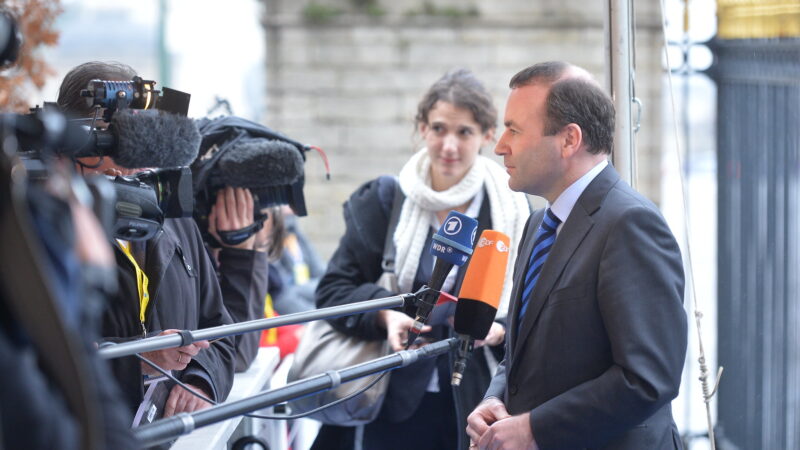The EU top jobs merry-go-round – over to you, European Parliament?

So the Heads of State and Government put in an all-nighter at the European Council in Brussels. And this morning at the time of writing there is still no consensus as to who will get any of the EU’s top jobs, President of the European Commission foremost among the positions that need to be agreed.
It was important for the European Council to sort this out before the first constitutive session of the new European Parliament later this week – the European Parliament may now be able to steal a lead on the Member States in sorting out this conundrum.
But why do we have the conundrum in the first place?
In 2014, the last time we went through this process, choosing the Commission President was relatively easy. Both of the major political parties in the EU – the centre-right European People’s Party (EPP) and centre-left Party of European Socialists (S&D) had their candidates – Jean-Claude Juncker and Martin Schulz respectively. The EPP ended up as the largest party in the EP, and the choice of Juncker followed from that.
But there was one major difference between Juncker and this year’s nominee, Manfred Weber.
Juncker, as a former Prime Minister of Luxembourg, had been one of the Heads of State and Government, as well as getting the backing of the European Parliament. He could understand both sides. By contrast Weber has been a European Parliament person, and only that, for all of his career.
The EPP could have done it another way, by backing former Finnish Prime Minister Alexander Stubb in its internal vote to decide its nominee, But Weber won that race 492 to 127 votes. The EPP did not stop to think: is Weber actually the right person? He was their person, and that was all that mattered to them.
Any other possible EPP candidates – Barnier, Varadkar, Georgieva, Lagarde – have the reverse problem. They might have held national roles, but they lack any really deep support within the EPP, and immediately draw the ire of the European Parliament that wants to defend the Spitzenkandidat process. None of them are especially compelling candidates either.
The main opponent of Weber is Macron whose La République En Marche! MEPs now sit with the liberals in the European Parliament. But while Macron kicks up a stink about Weber, he is not really determined to build an alliance behind the best liberal candidate in the race, Margrethe Vestager, either. A sort of progressive alliance between liberals, social democrats and greens could be used to strengthen the case for Vestager, but – in light of the discussions at the European Council – that seems to not really be happening currently.
All of that then then led to the idea that PES nominee Timmermans was a viable Commission President, and a deal towards that end was apparently brokered in the margins of the G20 in Osaka. But that then seems to have failed in Brussels as the Osaka deal had not cleared with some of the member parties of the EPP.
It strikes me then that the only thing that has remained the same in all of this is the impact of leaders’ egos. Macron, Orbán, Tajani and Oettinger have all just basically staked out their opposition to, or staunch defence of, one candidate or another in their public statements and media interviews, and are not actually seeking solutions. They would rather not be wrong, than actually do something that is right for the EU.
The EPP, so used to calling the shots, selected a candidate with major downsides – no Council experience, and perceived to be too lax about rule of law breaches in Central Europe – and thought they could bulldozer him through. The PES – that did badly at the election but has a better candidate – nevertheless lacks the ability to persuade others of the merits of its guy. And the Liberals cannot properly unite behind their candidate as an alternative. And compelling candidates for the other top positions – President of the European Council and High Rep for Foreign Policy – are in short supply as well.
We have seen it before on pieces of legislation – the Services Directive or the General Data Protection Regulation for example – where the European Parliament can seize the initiative when the Member States are deadlocked. Now is perhaps the time for the EP to do just that for the top positions as well, offering the Member States a way out of the conundrum?